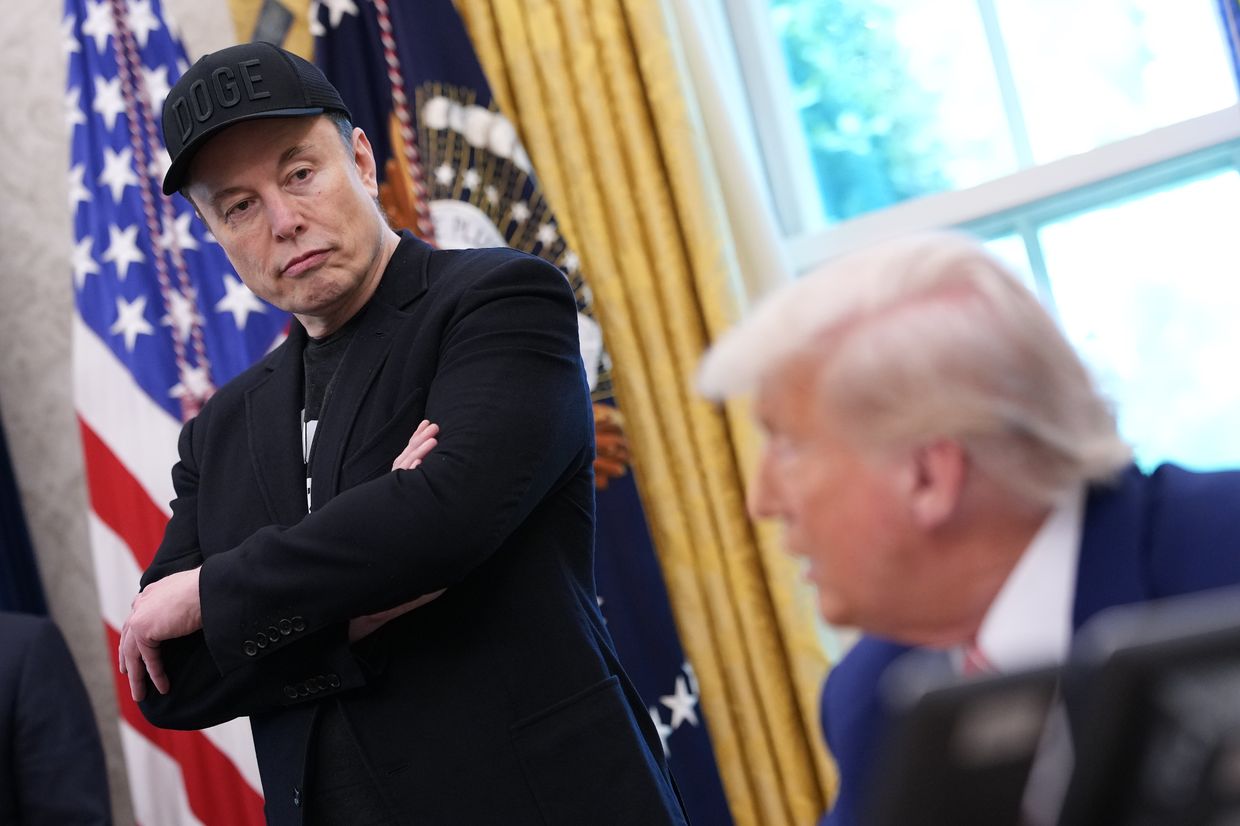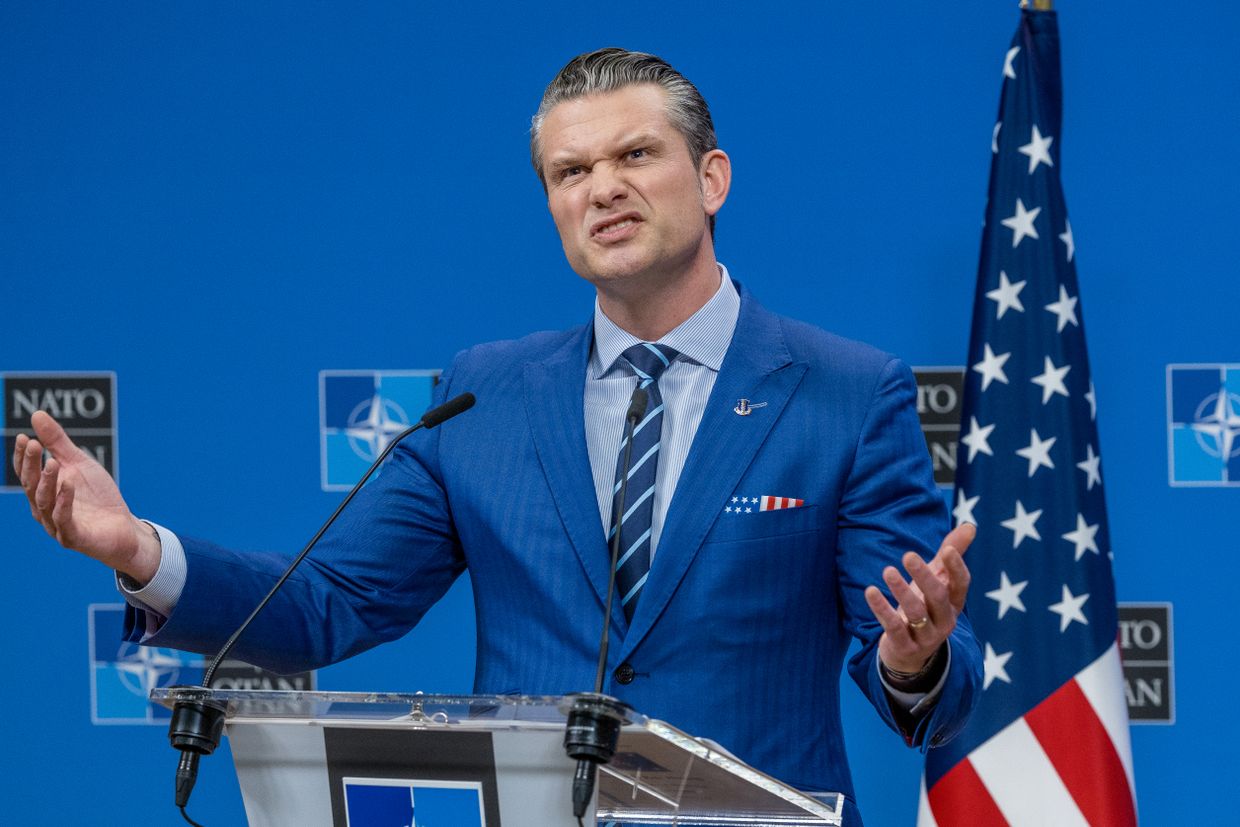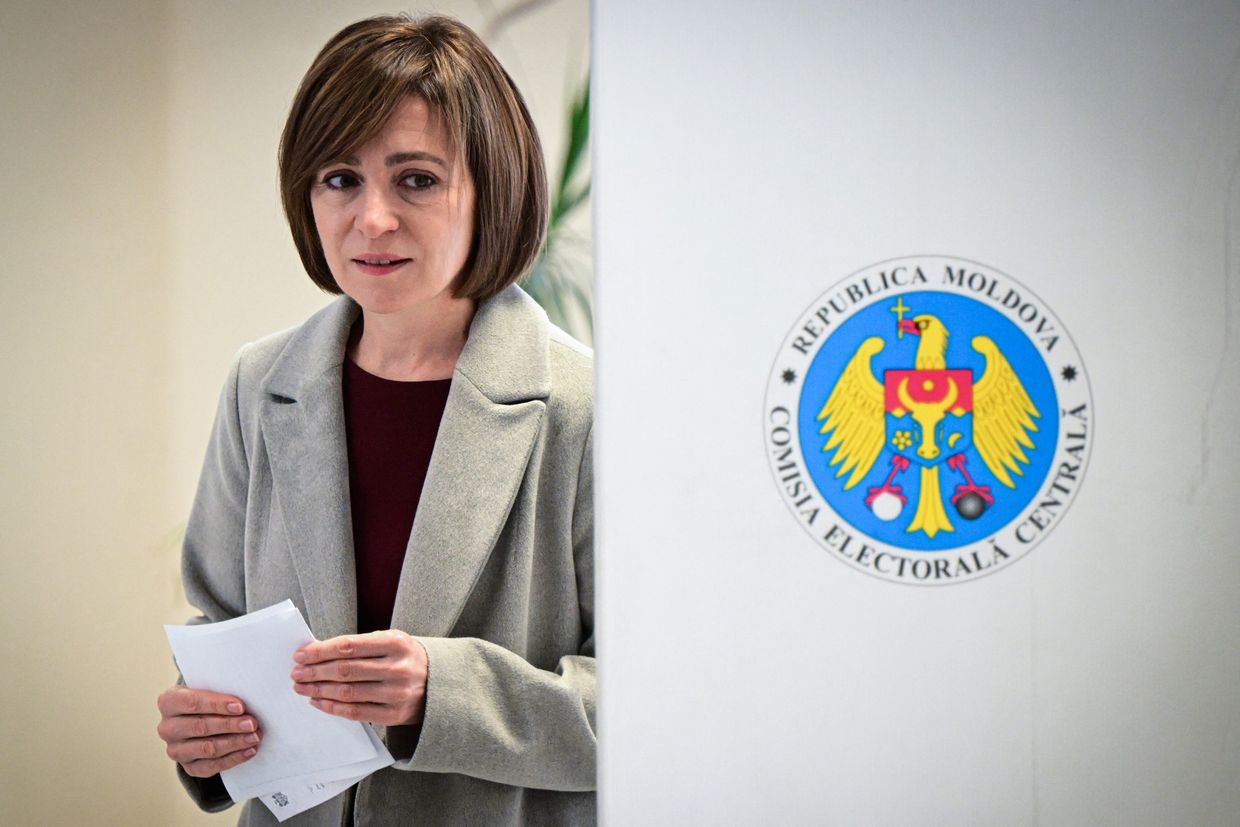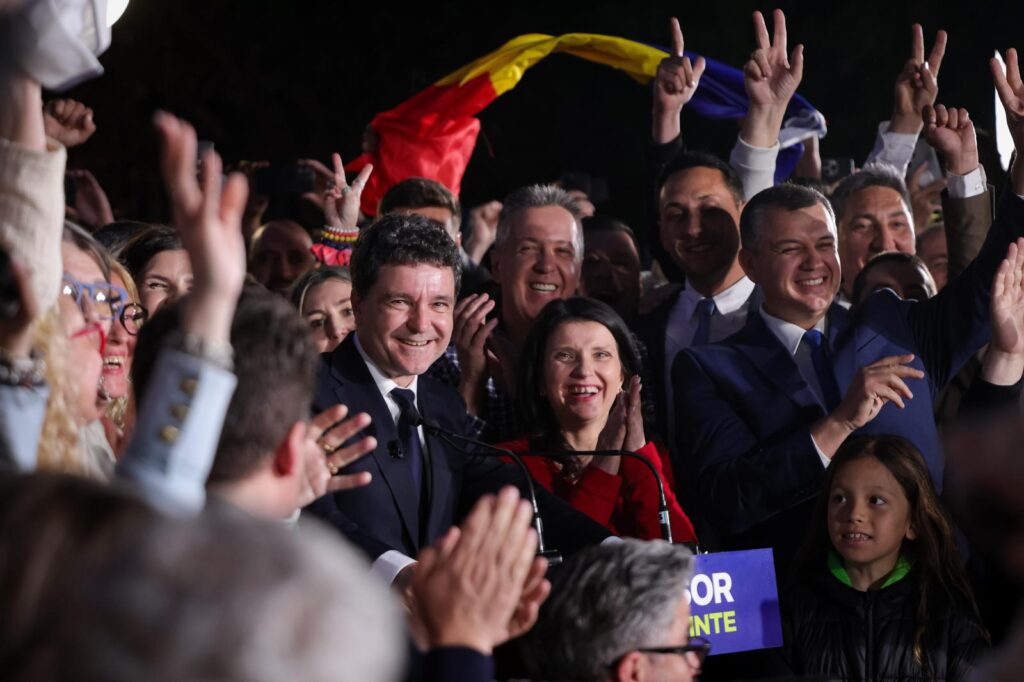Sohei Kamiya Brings Trump-Style Populism to Japan’s Election

© Ko Sasaki for The New York Times

© Ko Sasaki for The New York Times

© Issei Kato/Reuters

© Haiyun Jiang for The New York Times

© Maddie McGarvey for The New York Times

© Haiyun Jiang for The New York Times

© Carlos Jasso/Reuters

© Eduardo Munoz/Reuters

© Cassidy Araiza for The New York Times

© Haiyun Jiang/The New York Times

© Haiyun Jiang for The New York Times

© Tierney L. Cross/The New York Times

© Desiree Rios for The New York Times

© Desiree Rios for The New York Times

© Doug Mills/The New York Times

© Mauricio Lima for The New York Times

© KC McGinnis for The New York Times

© Jean-Christophe Verhaegen/Agence France-Presse — Getty Images

Moldova's Victory bloc, a pro-Russian political alliance, plans to participating in the country's September parliamentary elections, the bloc's founder Ilan Shor announced on July 6.
Shor, an exiled pro-Kremlin oligarch, established the Victory bloc in August 2024. The bloc includes his own Shor party, which is banned in Moldova.
Victory will submit documents in the coming days registering the bloc for participation in the September vote, Shor said.
"Our main goal in these elections is to overthrow the fascist regime and hold early democratic elections within the next six months," Shor said.
The candidate list will be headed by Evghenia Gutul, the head of Moldova's Gagauzia region, who is currently on trial for illegally funding the banned Shor party. Gutul maintains ties to Moscow and is currently under U.S. sanctions.
The upcoming September elections carry high stakes for Moldova, one of the pooerest countries in Europe. Moldovan President Maia Sandu said on July 4 that Chisinau's European path rests on the outcome of the vote.
European Commission President Ursula von der Leyen pledged on July 4 that the European Union will help Moldova defend itself against hybrid threats by "agents of autocracy" as elections approach.
Moldova was granted EU candidate status in 2022. Sandu's ruling Party of Action and Solidarity aims to maintain its parliamentary majority and move the country closer to full membership by 2030.
 The Kyiv IndependentThe Kyiv Independent news desk
The Kyiv IndependentThe Kyiv Independent news desk

Weeks after a high-profile public falling out with U.S. President Donald Trump, tech mogul Elon Musk announced the creation of a new political party in the United States, dubbed the "America Party."
Musk said on July 5 that the party's aim is to "give you back your freedom" and challenge the traditional two-party Republican and Democratic system.
The announcement came a day after Trump signed his sweeping tax cut and spending bill into law, a legislative act that Musk has fiercely opposed. It remains unclear if the America Party has been formally registered with election authorities, but Musk indicated it would launch "next year."
Musk's decision follows a poll he conducted on X on July 4, asking his followers if he should create a new political party.He cited the overwhelming support, writing: "By a factor of 2 to 1, you want a new political party and you shall have it! When it comes to bankrupting our country with waste & graft, we live in a one-party system, not a democracy."
The strained relationship between Musk and Trump began to deteriorate significantly after a period where Musk publicly supported Trump's re-election bid and held a high-profile role in the U.S. government's Department of Government Efficiency (DOGE).
In May, Musk announced his departure from DOGE, citing the end of his "scheduled time." Initially, Trump praised him as "one of the greatest business leaders and innovators the world has ever produced."
However, tensions escalated sharply on May 22 after the U.S. House of Representatives passed the "One Big Beautiful Bill Act," a significant tax-cut and spending bill that Trump signed into law on Friday.
Musk vehemently condemned the legislation, calling it a "massive, outrageous, pork-filled Congressional spending bill is a disgusting abomination." He argued that the bill's spending would exacerbate the "already gigantic budget deficit" and "burden American citizens with crushingly unsustainable debt."
Adding to the friction earlier this week, Trump threatened to cut off billions of dollars in federal subsidies to Musk's companies and even hinted at the possibility of deporting the South Africa-born entrepreneur.
 The Kyiv IndependentAnna Fratsyvir
The Kyiv IndependentAnna Fratsyvir

Moldovan President Maia Sandu said on July 4 that her country's European Union aspirations depend on Moldovan citizens as a crucial September 28 election approaches.
Sandu hopes her pro-European Party of Action and Solidarity (PAS) will retain its parliamentary majority, paving the way for Moldova, one of Europe's poorest nations, to join the EU by 2030.
Sandu made her remarks at the conclusion of the 27-nation bloc's inaugural summit with Moldova. Her PAS party faces a challenge from the pro-Russian Socialist Party and its allies in the upcoming election. Sandu secured re-election last year by a narrow margin against a Socialist challenger in the ex-Soviet state, located between Ukraine and Romania. A referendum seeking public backing for EU membership also just barely surpassed a 50% majority.
"Prosperity and peace do not occur for nothing, you have to build them. With collective effort and unity. When citizens are united and choose the correct path and proceed along it," Sandu told a news conference after the summit. "The European Union is already happening here. The only risk is if we stop. If we decide this autumn that nothing will stop us, then everything is possible."
Sandu and her party have condemned Russia's invasion of Ukraine and accuse Moscow of destabilizing Moldova. Russia, in turn, claims many Moldovans desire to maintain ties with Moscow and accuses Sandu of fostering Russophobia.
Opinion polls suggest that no single party will likely secure a parliamentary majority. If no majority emerges, pro-European parties would need to engage in coalition talks.
At the summit, which included European Commission President Ursula von der Leyen and European Council head Antonio Costa, the EU announced the disbursement of the first €270 million ($318 million) tranche of an Economic Growth Plan for Moldova.
 The Kyiv IndependentAnna Fratsyvir
The Kyiv IndependentAnna Fratsyvir

© Cassidy Araiza for The New York Times

© Jim Vondruska for The New York Times

Three former US ambassadors to Romania have written that Russian President Vladimir Putin’s failed attempt to manipulate the country’s 2024 presidential election through digital warfare represents a new battleground for democratic sovereignty. In a Politico opinion piece, the retired diplomats argue that Romania’s successful resistance offers a blueprint for defending Western democracies against authoritarian interference.
Mark Gitenstein, Adrian Zuckerman and Jim Rosapepe write that Putin spent millions of dollars attempting to install a pro-Russian president in Romania through what they characterize as a sophisticated social media manipulation campaign.
The diplomats contend that Putin’s strategy involved boosting candidate Călin Georgescu from complete obscurity to capturing 21% of the vote in just two weeks through TikTok, Telegram and other platforms. They describe this “social media blitzkrieg” as a “Leninist-style effort to destroy democracy in Romania” designed to undermine US, NATO, and EU security interests.
The former diplomats write that Romanian and Western intelligence services successfully uncovered what they call a “stealth invasion” of the country’s electoral process. They argue that the discovery of serious violations of electoral law and foreign interference led to the constitutional court’s extraordinary decision to annul the first round and order a complete do-over.
According to the opinion piece, Georgescu violated Romanian law by claiming he neither raised campaign contributions nor incurred campaign expenses while benefiting from the multimillion-dollar Russian operation. The authors contend this exposed the candidate as having “a malevolent benefactor in Putin.”
The retired diplomats write that when the second round was held, Romanian citizens responded to the crisis with “clarity and courage,” driving turnout from the average 51% to nearly 65%. They argue that voters chose the democratic, pro-NATO path by a decisive 54% to 46% margin, effectively rejecting Putin’s interference.
The three former ambassadors reveal they had publicly urged Romanians to reject the Russia-backed candidate in what they describe as an unprecedented intervention. “We couldn’t silently stand by and allow the patently false Russia-driven propaganda to go unchallenged,” they write, explaining their decision to issue an open letter with four other former US ambassadors.
The opinion piece argues that Putin’s approach evolved from his KGB background after failing to capture Kyiv militarily. The authors write that “never far from his KGB roots, the Russian president realizes public opinion can be manipulated and shaped by political proxies and propaganda beholden to Russia’s strongman.” They contend this represents a long-standing Soviet strategy to destroy Western democracies from within, now deployed through social media platforms.
The retired diplomats argue that “Putin’s war on democracy continues” beyond Romania, writing that fall elections in Moldova, Estonia, Georgia, the Netherlands, the Czech Republic and other European nations “are all ripe for interference.” They contend that cracking down on violations of election laws is imperative before propaganda can take hold.
“Russia rejoices,” wrote the pro-European Polish Prime Minister Donald Tusk on X this week. He was referring to a joint appearance onstage in Warsaw of George Simion, the far right presidential candidate in Romania, and his Polish equivalent Karol Nawrocki just days before elections in both countries.
On May 18, Romanians will vote in the second and final round of elections to pick their president, with Simion, a decisive first round winner, the favourite, albeit current polling shows he is running neck-and-neck with his opponent Nicusor Dan, the relatively liberal current mayor of Bucharest. Also on that day, the first round of Poland’s presidential elections will take place. Nawrocki, analysts suggest, is likely to lose to the more liberal Warsaw mayor Rafał Trzaskowski.
But Simion’s appearance in Warsaw did cause anger, with one Polish member of the European parliament describing both candidates as representatives of “Putin’s international”. Simion denies being pro-Kremlin, but wants to stop military aid to Ukraine. An ultranationalist, he promotes the rebuilding of a greater Romania, raising the prospect of potential territorial disputes with Ukraine, Moldova, and Bulgaria. Indeed, he is already banned from entering both Moldova and Ukraine.
Rather than Russia, the association Simion prefers to acknowledge is with Donald Trump and MAGA. As he said of his visit to Poland and support for Nawrocki, “Together, we could become two pro-MAGA presidents committed to reviving our partnership with the United States and strengthening stability along NATO’s eastern flank.”
Certainly, Simion’s MAGA love was on show during the first round of Romania’s election on May 4, and MAGA reciprocated that love.
At the party’s Bucharest headquarters, on a warm, triumphant election night, with Simion having won over 40% of the votes, a MAGA hat-wearing American took to the podium. He asked the cheering crowd if they wanted their own "Trump hat", and threw one (and only one) towards a section chanting "MAGA, MAGA, MAGA." Brian Brown, a prominent conservative activist, was in his element, expressing solidarity with jubilant Simion supporters.
"You, my friends," he said, "are in the eye of the storm. What happens in this country will define what happens all over Europe. And Americans know it and more and more are waking up to the truth that we must stand together. We must never be silenced." Meanwhile, a protester screaming “fascists” was quickly removed.
Brown, who leads the anti-LGBTQ group International Organization for the Family and has been described by human rights organizations as an "infamous exporter of hate and vocal Putin supporter," was celebrating a seismic political shift. In response to Simion’s large first round victory, Romania's prime minister resigned. His own party's establishment candidate didn’t even make it to the May 18 second round.
Simion, a 38-year-old Eurosceptic and self-described "Trumpist," had founded his far-right nationalist party, Alliance for the Union of Romanians (AUR) just over a decade ago. At the AUR offices on election night – with Simion himself only appearing by video – Brown drew explicit parallels between Romania's situation and that of America, extolling the "friendship of true Romanians and true Americans, people that stand together against a lie." Right wing leaders in other countries echoed the sentiment. Italy's deputy prime minister Matteo Salvini, for instance, declared on social media that Romanians had "finally voted, freely, with their heads and hearts."
Romania's election became a right wing cause célèbre after the Constitutional Court annulled the presidential polls in December last year, ruling that it had been vitiated by a Russian influence operation. U.S. vice president JD Vance accused Romania of canceling the election based on “flimsy suspicions” and Elon Musk described the head of the Constitutional Court as a “tyrant”. This is why MAGA supporters took a keen interest in the May 4 do-over. It was, according to Brown, a litmus test for freedom, for the voters’ right to choose their president, no matter how unpalatable he might be to the establishment.
In November, 2024, far-right candidate Călin Georgescu won the first round of Romania’s presidential elections. The polls were scuppered though after intelligence revealed irregularities in campaign funding and that Russia had been involved in the setting up of almost 800 TikTok accounts backing Georgescu’s candidacy. He was also barred from participating in the rerun.
Distrust and disapproval of Romania’s political system have been growing ever since. When I got to Bucharest, my taxi driver, the first person I met, told me he wouldn’t even bother voting in the rerun. The ban on Georgescu was portrayed in right wing circles as anti-democratic. And the support he received from leading Trump administration figures such as Vance was in keeping with their support for far-right parties across Europe.
Before Friedrich Merz won a contentious parliamentary vote to become German Chancellor, U.S. Secretary of State Marco Rubio said Germany was a “tyranny in disguise” because its intelligence services classified the anti-immigration AfD, now Germany’s main opposition party, as “confirmed right wing extremist[s].” Vance said the “bureaucrats” were trying to destroy “the most popular party in Germany.” It proved, he added, that decades after the West brought down the Berlin Wall, the German establishment had “rebuilt” it. The outspoken nature of this intervention in the internal politics of an ally shows that the Trump administration would rather maintain ideological ties with far-right parties in Europe than follow traditional diplomatic protocols.
Simion, for his part, has said that he’s a natural ally of the U.S. Republican Party, and that AUR is “almost perfectly aligned ideologically with the MAGA movement.” Just two weeks before the Romanian elections, Brian Brown met with Simion and his wife in Washington, D.C., with both men propagating their affinity to “the free world” and “Judeo-Christian legacy” in an Instagram video. Simion is also currently being scrutinized over attempts to hire a lobbying firm in the U.S. for $1.5 million to secure meetings with key American political figures and media appearances with U.S. journalists.
In Romania, the president has a semi-executive role that comes with considerable powers over foreign policy, national security, defence spending and judicial appointments. The Romanian president also represents the country on the international stage and can veto important EU votes – a level of influence that might be considered handy on the other side of the Atlantic too.
The fact that both U.S. and other European far-right leaders came in person to offer their support to Simion after the first round of the election, or paid obeisance online, shows how it’s becoming increasingly important for the far-right to to be seen as a coherent, global force. As Brown put it in Bucharest: “We need MAGA and MEGA. Make America great again. Make Europe great again.”
With Canada and Australia swinging to the center-left in their recent elections – in what many have called “the Trump slump” – the Romanian election offers Trump and MAGA hope that it can continue to remake the world in its own image. The irony is that MAGA, with its global offshoots, is arguably the most effective contemporary international solidarity movement, despite railing against globalism and being so apparently parochial in its outlook.
A version of this story was published in last week’s Coda Currents newsletter. Sign up here.
The post Bucharest Calling: MAGA goes on tour appeared first on Coda Story.